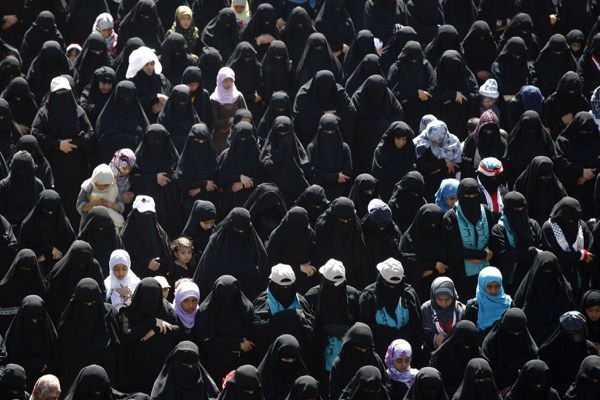When Kawkab Althaibani demonstrated in Change Square in Yemen’s capital, Sanaa, during the 2011 protests against then-President Ali Abdullah Saleh, her heart, she recalls, “was full of hope.” Today, six weeks after Houthi militias surrounded her house in Sanaa looking for her husband, an outspoken critic of the group, she is in Istanbul, where she fled the insecurity of Yemen’s civil war to seek asylum for her and her family.
Althaibani is just one of many Yemeni women who once believed that the 2011 uprising was the harbinger of a more moderate, more inclusive and peaceful Yemen. Despite violence from security forces, electrical cuts and food shortages during those protests, Yemenis of all stripes gathered in Change Square for months on end, determined to oust Saleh after more than 30 years of cronyism, corruption and uncontested power.
During those heady early days, women fully veiled in the niqab poured into the square, punching their fists into the air, leaping atop tanks and even camping alongside men. For some Yemeni women, it was the first time that they had ever uncovered their faces or spoken their own name in public. They demonstrated, cooked food, spoke to reporters, wrote about their experiences and dressed wounds. Many died and not a few were disappeared by Saleh’s forces. The world took notice: For the first time in the Arab world, the Nobel Peace Prize was awarded to a Yemeni, and a woman—Tawwakol Karman, who helped lead the protests against Saleh.

